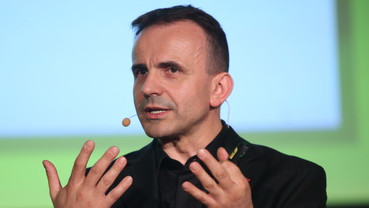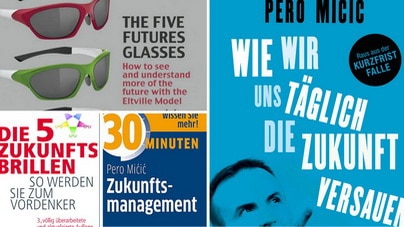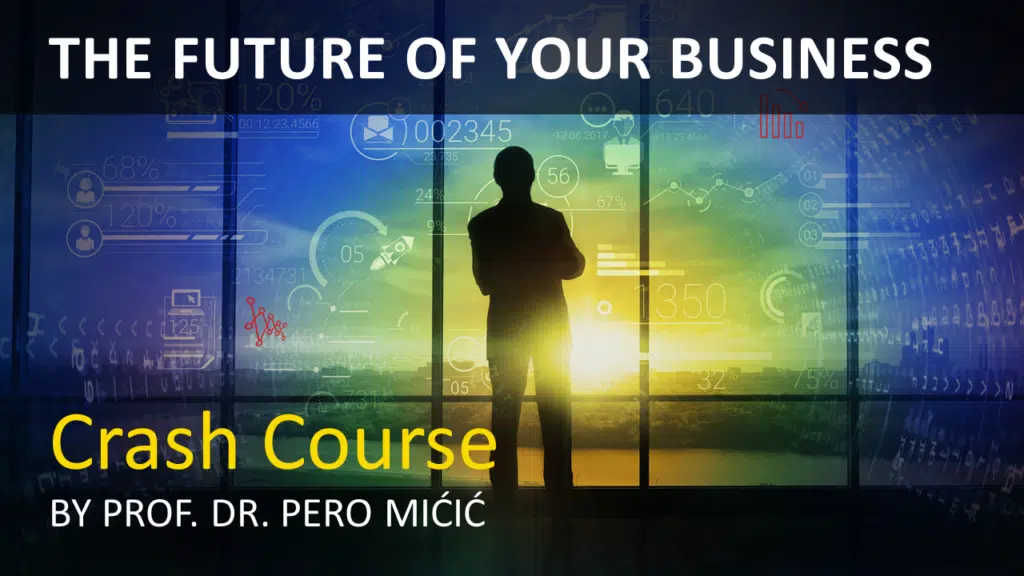Will and may we tinker with our genes?
Dr. Pero Mićić on genome editing and CRISPR
The prestigious journal “Science” has chosen a biochemical process as the breakthrough of the year 2015: CRISPR/Cas9. It enables comparatively simple, rapid and inexpensive modification of genes. Genome editing and CRISPR promise to revolutionize medicine and biotechnology. As with a pair of scissors, DNA can be cut specifically at a sequence that can be determined.
Gene segments can be removed, modified, switched off or supplemented with new building blocks. It is a kind of ‘biological word processor’ with which man can ‘edit’ his existence and that of his environment in the future. A truly powerful tool. A continuation of evolution by other means, so to speak. The fact that man is on the threshold of taking evolution into his own hands, instead of being its plaything, stirs up hope and even fantasies of omnipotence for some and fears for many others. After all, the process has an impact not only on living creatures, but on entire ecosystems. And in the case of humans, on their self-image, their values and the social structures in which they live.
The modification of the human germline will most likely continue to be handled very restrictively in the future, among other reasons because changes are inherited. But it is no longer a taboo. In the UK, scientists will be allowed to modify the genetic material of human embryos in a targeted manner – albeit initially only for research purposes. And Chinese scientists have already performed genetic manipulations on embryos to test whether it is possible to eradicate a genetic disease in which too little hemoglobin, the pigment in red blood cells, is produced; it is called ß-thalassemia.
However, this is still a long way from clinical application. Fears abound: They range from the danger of abuse by a self-optimizing and empowering super-elite to the extinction of all humanity by ‘mutants’ who genetically assert themselves. It makes perfect sense to think of such extreme scenarios. But they also seem disproportionate in a world where millions of people die every year from the consequences of alcohol and tobacco consumption or from car accidents because they are allowed to take risks on their own responsibility and relatively carelessly.
Responsibility means exactly that: taking risks consciously and sensibly. But also: to take advantage of opportunities. And they are immense and numerous. Imagine the future when CRISPR/Cas9 is mature:
- Numerous genetic hereditary diseases have been eradicated
- Cancer and AIDS are curable, even preventable
- Replacement organs compatible with humans can be bred in animals
- Higher-yielding and more robust crops have solved the food problem of a world population that continues to grow
- The use of pesticides in agriculture could be dramatically reduced or even completely eliminated
- New enzymes have revolutionized biofuel production
- Mosquitoes can no longer transmit malaria and other dangerous pathogens
Since time immemorial, man’s goal has been to improve himself and his living conditions. To do this, we use science and technology, and in doing so, we repeatedly cross boundaries. In a way, this is also an emancipation from an often threatening nature. This can be criticized as human overconfidence and a never-ending mania for optimization.
But please don’t overlook the fact that we live in a much better world today than we did 100 years ago. Thanks to progress. It is hard to imagine how arduous and short our lives would still be if we had not taken advantage of earlier opportunities. With CRISPR/Cas9, we have another technology at our disposal that literally forces us to make decisions.
It forces us to be sovereign shapers of our future – even if it is by deciding to explicitly use this technology only to a limited extent or not at all.
Or perhaps humans will decide to use it not only to fight disease, but also as an enhancement technology to improve their physical and cognitive abilities and live healthier, longer lives. These are irrepressibly strong needs that some people are already willing to pay a lot of money to satisfy. Those who have it. Wouldn’t it be better if these options were available to virtually everyone? With CRISPR/Cas9 and similar techniques, we can put an end to fateful diseases, make our fields pesticide-free and much more. These prospects alone make it worthwhile to conduct the discussion about genetic technologies in a level-headed and benefit-oriented manner rather than hysterically and dogmatically. The particular challenge is that we can never fully control complex systems. But if we ban it altogether, we would have to ban most drugs by the same principle.
And now?
Look closely. Perhaps you work in an industry that has not yet realized that and how it can use white, green or red genetic engineering to better solve its customers’ problems and better meet their needs.
For the benefit of your customers and thus your company.
In the end, as is so often the case, the benefits should be very welcome and the dangers as manageable as possible.
Follow these links as well:
► The Future Strategy Program for SMEs
► Free video crash course THE FUTURE OF YOUR BUSINESS
► BUSINESS WARGAMING for robust business and future opportunities
► KEYNOTES by Pero Mićić for your employees and customers
Have a bright future!


















